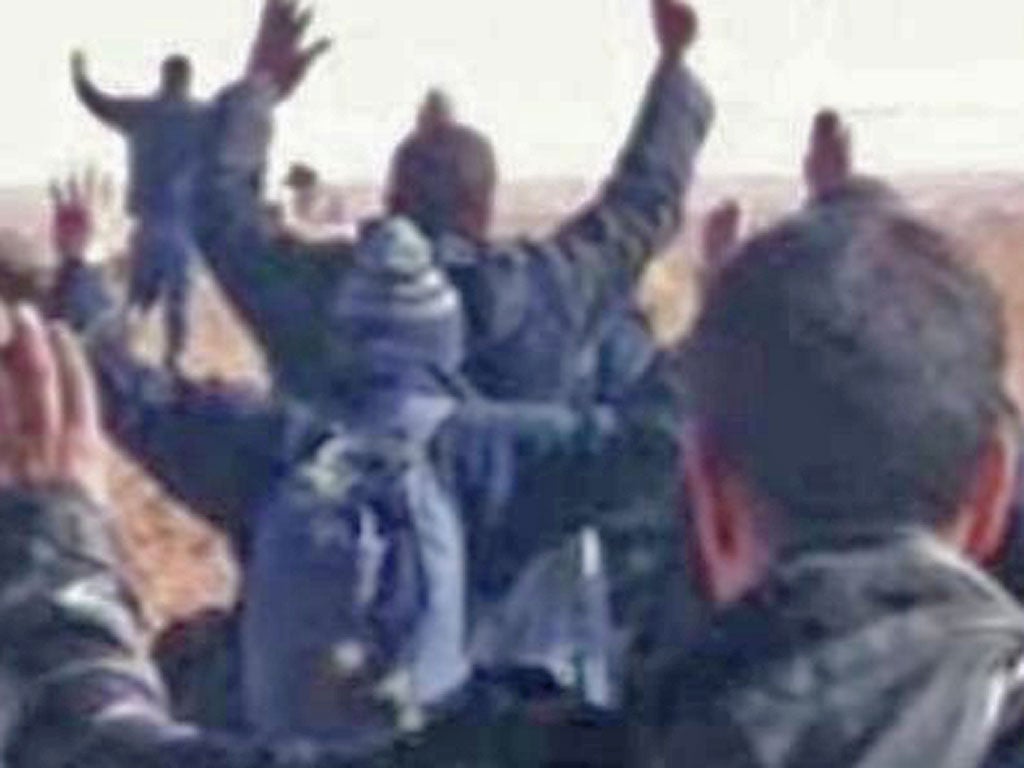Mali, Algeria and what the latest conflict in north Africa tells us about the meaning of 'War on Terror'
The Shadow Foreign Secretary argues against the use of a tired, imprecise phrase

Yesterday, just as President Obama was declaring that a “decade of war was ending”, the Prime Minister was warning in the Commons that we faced a “generational struggle against an ideology”. Newspaper headlines this week have screamed that “War against al-Qaeda in Africa could last decades”.
The aftermath of the terrorist outrage in Algeria is a time for clear thinking and considered judgement. And it is a time to apply the lessons we have learned over recent years. Stumbling into Sahelistan is in no one’s interests.
The rhetoric of a global war on terror is certainly familiar. But it is a language – and a frame – that should be resisted, indeed rejected. Why? Because it suggested a unified, coherent transnational enemy, embodied by al-Qa'ida – when in fact the reality is a more complex and disparate mix of groups and grievances. It also allowed organisations – principally al-Qa'ida – to seek to aggregate diverse regional and religious problems into a single narrative around the alleged oppression of Muslims.
Manichean myths
Today the challenges and circumstances we confront demand a different response. Al-Qa'ida – using modern technology to advance medieval ideas – is like a mutating virus, seeking out weak host bodies in which to take root and spread. First in Afghanistan during Taliban rule, then resurfacing in Pakistan post 9/11 and more recently in Yemen and Somalia.
Today we are witnessing yet another mutation. The Arab Spring – which first powerfully challenged al-Qa'ida’s narrative of violent change - has nonetheless contributed to regional instability that Al Qaida now seeks to exploit. The spill over from this can now be seen across North and West Africa.
So how should the international community respond to this emerging threat in the Sahel region?
First - in a way that was not the case in Iraq, by prioritising an understanding of the peoples, history and culture of the region.
To try and draw simplistic lines between good and bad will only help those seeking to unify those with ethnic, regional and international grievances. The prize is to keep those movements separate, not unite them.
That requires good diplomacy – coordinated by the UN. The job of UN Special Envoy to the region has just been given to former Italian Prime Minister Romano Prodi – who is said to have no expertise in the Sahel, knows none of the local languages and only has a basic understanding of French. West Africa is not short on regional experts – so the UN must acknowledge the true scale and urgency of the challenge by empowering them to undertake this work.
Second, of course terrorist groups need to be tackled at root. The question is not whether to do so, but how?
Across this vast region we need more intelligence sharing on the characteristics and capability of the emerging threats. Notwithstanding the horror of In Amenas, the capacity of militants to strike beyond the region remains, as yet, uncertain.
Earlier this month the French acted to stem an advance that has already seen of al-Qa'ida in the Maghreb join with local forces to take control of an area twice the size of Germany.
The French intervention only reinforces the urgency of getting West African forces on the ground. Nigerian forces are now arriving in Mali but the need remains for financing, training and vital intelligence support. ECOWAS must be in the lead, but for this to happen will require the EU in particular to now work rapidly to enhance their capacities.
Law as weapon
This regionally led, multilaterally backed, approach is the means by which the UK doesn’t just help French forces go in, but also helps French forces get out.
Third, the threat of terror must be met by the rule of law. Mali’s government doesn’t just lack security. It lacks legitimacy after a military coup last March. Poverty and lawlessness blight the lives of the population. The development effort must therefore match the security response. That means a focus on politics and strengthening governance - both keys to unlocking a more prosperous and secure future for the country.
So we need a joint EU/AU led initiative – with the backing of the UN - aimed at strengthening governance and development in Mali so that the government will better command the support of all its citizens.
None of this is easy, or quick. But it is necessary. Learning the right lessons from our past is vital now to charting the right course for the future. The choice in the Sahel is not between doing nothing, and intervening with British and other Western nation’s combat forces. There is a wiser and more effective response that combines diplomacy, development, politics and security. This should be the choice that Britain makes.

Join our commenting forum
Join thought-provoking conversations, follow other Independent readers and see their replies